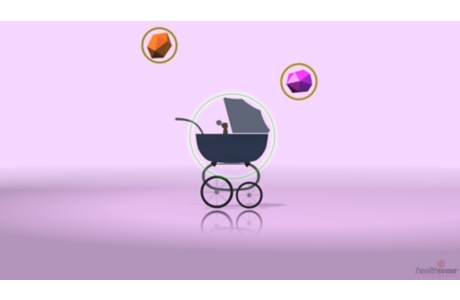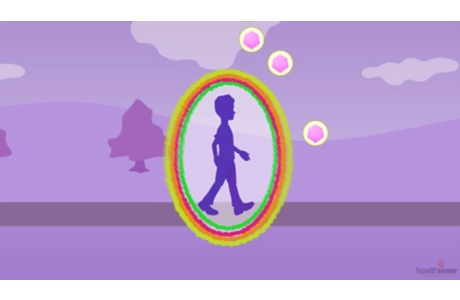Vaccinations
What are vaccines?
Vaccines help keep you and your child from getting certain diseases that are spread from person to person (infectious diseases). They also help reduce the spread of a disease and prevent a sudden outbreak of the disease, which is called an epidemic. Vaccines are also called vaccinations or immunizations.
If you get a vaccine, it may not completely prevent you from getting a disease. But it does make it much less likely. If you get a disease even after you have been vaccinated, it will likely be less serious than it would for someone who was not vaccinated at all.
Vaccines are most often given as a shot (injection). Some are given by mouth as a pill or liquid. Others may be given as a spray (aerosol) into the nose.
What are some reasons to get vaccinated?
Vaccines help save lives. They are the best way to help protect you or your child from getting certain diseases that are spread from person to person (infectious diseases).
They also help reduce the spread of a disease to prevent a sudden outbreak of the disease, which is called an epidemic. Preventing the spread of disease is very important for people with weak immune systems. These people may not be able to get vaccines, or vaccines don't work well for them. Their only protection is for others to get vaccinated so that infectious diseases are less common.
Here are some other reasons why vaccines are important:
- They cost less than getting treated for the disease.
- The risk of problems from getting a disease is much greater than the risk of having a serious reaction to the vaccine.
- They are often required to enroll in school or day care. And they may be required depending on your work or to travel to another country.
What are the side effects of vaccines?
Most side effects from vaccines are mild, if they occur at all. They may include:
- Redness, mild swelling, or soreness where the shot was given.
- A mild fever.
- Drowsiness, crankiness, and poor appetite.
- A mild rash 7 to 14 days after chickenpox or measles, mumps, and rubella shots.
- Temporary joint pain after a measles, mumps, and rubella shot.
Ask your doctor or pharmacist about other reactions that could occur. Serious reactions, such as trouble breathing or a high fever, are rare. The risk of problems from getting a disease is much greater than the risk of having a serious reaction to the vaccine.
If you or your child has an unusual reaction, contact your doctor or get medical care right away.
How safe are vaccines?
Vaccines are safe. The U.S. Food and Drug Administration (FDA) carefully evaluates all vaccines for safety. Federal law requires health professionals to report any reaction following a vaccination to the Vaccine Adverse Events Reporting System (VAERS). Go to www.cdc.gov/vaccine-safety to learn how vaccine safety is checked.
The risk of a serious complication from a disease is far greater than the risk from the vaccine. Most side effects of getting a vaccine, if they occur, are mild.
Some parents worry that vaccines cause autism spectrum disorder (ASD) in children. But many studies have been done, and no link has been found between vaccines and ASD.
Talk to your doctor if you have concerns about the safety of vaccines.
Vaccine and Immunization Schedules
The U.S. Centers for Disease Control and Prevention (CDC) prepares immunization schedules each year. The schedules outline the immunizations and booster shots for healthy children, teens, and adults.
The schedules are prepared so that vaccines work best with a child's immune system at certain ages and at certain times. They're set up so that your child gets the best protection possible at the earliest age possible from the fewest shots possible.
The CDC also has vaccine schedules for people who have health problems, such as asthma or diabetes, and in other circumstances, like pregnancy.
If you have questions about vaccines, talk to your doctor about them so you and your child can get the best protection from disease.
Go to www.cdc.gov/vaccines for the most current information.
Immunization Records
It is important to keep current records of your child's vaccines, including any reactions to the vaccines. When you enroll your child in day care or school, you may need to show proof of vaccinations. And your child may need the record later in life for college, employment, or travel.
- Know when each vaccine can be given. Put reminder notes on your calendar or on your phone. You also may want to ask your doctor to send you notices when vaccines can be scheduled.
- Be sure your records are accurate. Have your doctor go over your child's vaccine record with you during each office visit.
- Keep your record in a safe place with other important documents. It is an important part of your child's lifelong medical records.
Travel Immunizations
Check with the nearest travel health clinic, your regional health department, your doctor, or the Centers for Disease Control and Prevention website at wwwnc.cdc.gov/travel to see what kind of vaccines you should get.
You may need vaccines to protect against:
- Infections, such as shots for polio, diphtheria, measles, whooping cough (pertussis), mumps, or rubella.
- Tetanus.
- Hepatitis A.
- Hepatitis B.
- Influenza (flu).
- Pneumonia.
- Typhoid fever.
- Rabies.
- Cholera.
- Yellow fever.
You may need other vaccinations. It depends on the area you are visiting, how long you will be there, and the purpose of your journey. For example, if you will be in rural Asia for a month or longer, you may need a vaccine for Japanese encephalitis. Or you may need to take medicine for malaria if you are visiting areas where malaria is a risk.
When to Call a Doctor
Call 911 or other emergency services if you or your child:
- Has symptoms of a severe allergic reaction. These may include:
- Sudden raised, red areas (hives) all over the body.
- Swelling of the throat, mouth, lips, or tongue.
- Trouble breathing.
- Passing out (losing consciousness). Or you or your child may feel very lightheaded or suddenly feel weak, confused, or restless.
- Severe belly pain, nausea, vomiting, or diarrhea.
Contact your doctor if:
- Redness and swelling at the site of the shot (injection) last longer than 48 hours.
- Your child is 3 months of age or younger and has a fever of 100.4 °F (38 °C) or higher.
- A fever lasts longer than a few days after a shot is given.
- You or your child has symptoms of an allergic reaction, such as:
- A rash or hives (raised, red areas on the skin).
- Itching.
- Swelling.
- Mild belly pain or nausea.
Talk with your doctor about what vaccines may be helpful if you or your child:
- Is in close contact with people who have an infectious disease.
- Has planned international travel, especially to developing countries.
- Lives with or visits a baby or someone who is pregnant.
- Lives with someone who has an impaired immune system.
Self-Care
Many vaccines are given as shots (injections). They may cause brief pain as the shot goes into the skin or muscle. Some vaccines hurt a little more than others.
Home care can help relieve some of the common, temporary, mild reactions to vaccines. These reactions include a mild fever, swelling or redness, crankiness, and poor appetite.
- Try using acetaminophen (such as Tylenol) or ibuprofen (such as Advil or Motrin) to help lower a fever. Give acetaminophen (Tylenol) or ibuprofen (Advil, Motrin) for fever if the doctor says it is okay. Read and follow all instructions on the label. Do not give aspirin to children and teens. It has been linked to Reye syndrome, a rare but serious illness.
- Apply a cold pack to the shot site to reduce swelling or redness. Put the cold pack on the area for 10 to 20 minutes at a time. Put a thin cloth between the cold pack and the skin.
- Plan quiet activities at home for the evening after getting a shot, in case there are side effects.
A mild skin rash may appear 7 to 14 days after someone gets a shot for chickenpox or measles, mumps, and rubella (MMR). These types of rashes can last several days. They go away without treatment.
Related Information
- Anthrax
- Cervical Cancer
- Chickenpox (Varicella)
- Fever or Chills, Age 11 and Younger
- Fever or Chills, Age 12 and Older
- Genital Warts (Human Papillomavirus)
- Hepatitis A
- Hepatitis B
- Influenza (Seasonal Flu)
- Measles (Rubeola)
- Meningitis
- Mumps
- Organizing Your Medical Records
- Pneumonia
- Rotavirus
- Rubella (German Measles)
- Shingles
- Smallpox
- Tetanus
- Travel Health
- Tuberculosis (TB)
- Whooping Cough (Pertussis)
Credits
Current as of: December 9, 2025
Author: Ignite Healthwise, LLC Staff
Clinical Review Board
All Ignite Healthwise, LLC education is reviewed by a team that includes physicians, nurses, advanced practitioners, registered dieticians, and other healthcare professionals.
Current as of: December 9, 2025
Author: Ignite Healthwise, LLC Staff
Clinical Review Board
All Ignite Healthwise, LLC education is reviewed by a team that includes physicians, nurses, advanced practitioners, registered dieticians, and other healthcare professionals.






